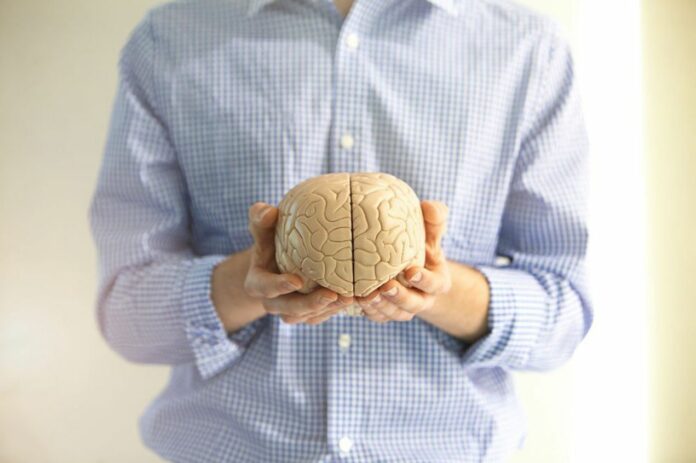Ageless Mind: Unveiling the Path to Shielding Your Brain from Alzheimer’s and Maintaining Youthful Cognition
According to a research article released online in Neurology, individuals who incorporate green leafy vegetables and other vegetables, fruits, whole grains, olive oil, beans, nuts, and fish into their diets may have a lower occurrence of amyloid plaques and tau tangles in their brains, both of which are indicators of Alzheimer’s disease.
The research analyzed adherence to the MIND and Mediterranean diets. Although they share similarities, the Mediterranean diet emphasizes vegetables, fruit, and three or more weekly servings of fish, whereas the MIND diet prioritizes green leafy vegetables such as spinach, kale, and collard greens, as well as other vegetables.
The MIND diet also prioritizes berries over other fruits and suggests consuming one or more servings of fish per week. Both diets suggest moderate consumption of wine.
Although this study indicates a correlation between regular consumption of these diets and a reduction in Alzheimer’s disease plaques and tangles, it does not establish a causal relationship.
The findings are “exciting” as even a minor dietary improvement in one area, such as consuming “more than six servings of green leafy vegetables” weekly or avoiding “fried foods, was associated with fewer amyloid plaques in the brain, similar to being about four years younger,” says lead author Puja Agarwal.
Agarwal also mentioned that while their study did not establish a cause-and-effect relationship between a healthy diet and a reduction in amyloid plaques, which are considered “an indicator of Alzheimer’s disease,” they identified a correlation.
“Following the MIND and Mediterranean diets may be one way” to enhance brain health and protect cognition as people age.
The average age of the 581 people who took part in the study was 84 at the time of the diet evaluation. They agreed to donate their brains when they died to help research on dementia. On a yearly basis, participants filled out questionnaires detailing their dietary intake across a number of different food groups.
On average, the participants in the research passed away seven years after it began. 39% of individuals had dementia that had been identified just before death. After death, examination revealed that 66% of the individuals fit the criteria for Alzheimer’s disease.
Brains of the study’s participants were analyzed post mortem to calculate amyloid plaque and tau tangle loads. Both appear in Alzheimer’s patients’ brains, and may also do so in those of healthy older adults. The quality of each person’s diet was then rated by researchers using the food questionnaires that were gathered throughout follow-up.
There were 11 main food groups in the traditional Mediterranean diet. Participants received a score between 0 and 55, with higher values given for eating whole grain cereals, fruits, vegetables, legumes, olive oil, seafood, and potatoes. They got lower scores if they ate red meat, chicken, and dairy products with a lot of fat.
MIND diet had 15 categories. One point was given for each of the ten food categories—green leafy vegetables, other vegetables, nuts, berries, beans, whole grains, fish, chicken, olive oil, and wine—on a scale of zero to fifteen. A point was deducted for each unhealthy food category they consumed in excess: red meats, butter and margarine, cheese, sweets and pastries, fried and fast food, and beverages with added sugar.
After this, individuals were placed into three groups for each diet, and those in the top and lowest groups were compared. Those in the top category for the Mediterranean diet scored an average of 35, while those in the lowest group scored an average of 26. The top and lowest groups for the MIND diet got average scores of 9 and 6, respectively.
After controlling for factors such as age at death, sex, education, total calorie intake, and the presence of a gene associated with an increased risk of Alzheimer’s disease, researchers discovered that those who scored highest for following the Mediterranean diet had average plaque and tangle amounts in their brains that were comparable to being 18 years younger than those who scored lowest. The MIND diet adherers who scored the highest also had plaque and tangle levels that were comparable to those of persons who were 12 years younger on average than those who earned the lowest.
A one-point increase in the MIND diet score linked to plaque levels typical of individuals 4.25 years younger in age.
After examining individual dietary components, researchers discovered that those who consumed the most green leafy vegetables, seven or more servings per week, had brain plaque levels that corresponded to being nearly 19 years younger than those who consumed the least, one or less servings per week.
Agarwal stated that their discovery indicating a correlation between consuming a higher quantity of green leafy vegetables and reduced indications of Alzheimer’s disease in the brain is fascinating enough to encourage individuals to incorporate more of these vegetables into their diet. However, additional studies are necessary to validate their findings.
The majority of the participants in the research were elderly, white, and non-Hispanic, therefore the findings cannot be applied to other groups.
The National Institutes of Health provided funding for the research project.
Image Credit: Getty
